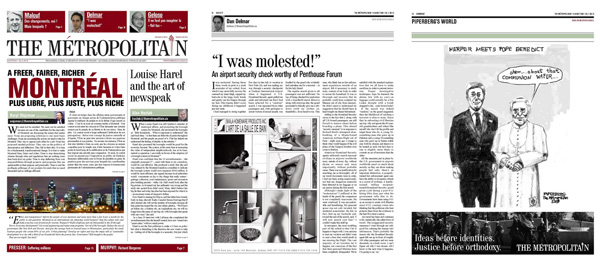A FREER, FAIRER, RICHER MONTRÉAL PLUS LIBRE, PLUS JUSTE, PLUS RICHE
By Beryl Wajsman on August 6, 2009
 “Ethics and transparency? Inform the people of your decisions and leave more than a few hours a month for the public to ask questions. Montreal as an international city attracting world business? Stop the culture wars and make a tax free zone downtown for tourists. Transport? Build a highway and rail link parallel to the 20 through Turcot. Economic development? Cut social engineering and nanny state programs. Get rid of the boroughs. Reduce the size of government like New York and Toronto. And give the savings back in lowered taxes to Montrealers, particularly the small business people who create 80% of our jobs. Urban planning? Develop air rights and stop the empty talk of ‘sustainable development’ in a city with a third of our households below the poverty line. Governance? Talk straight to the people. They are not stupid. Just tired.”
“Ethics and transparency? Inform the people of your decisions and leave more than a few hours a month for the public to ask questions. Montreal as an international city attracting world business? Stop the culture wars and make a tax free zone downtown for tourists. Transport? Build a highway and rail link parallel to the 20 through Turcot. Economic development? Cut social engineering and nanny state programs. Get rid of the boroughs. Reduce the size of government like New York and Toronto. And give the savings back in lowered taxes to Montrealers, particularly the small business people who create 80% of our jobs. Urban planning? Develop air rights and stop the empty talk of ‘sustainable development’ in a city with a third of our households below the poverty line. Governance? Talk straight to the people. They are not stupid. Just tired.”
Milles Mots
By Robert J. Galbraith on August 6, 2009
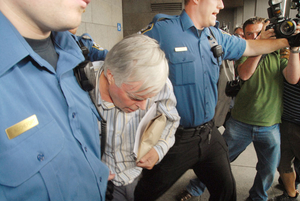
Des changements, oui ! Mais lesquels ?
By Pierre K. Malouf on August 6, 2009
Nous sommes en récession. À quelques exceptions près, les experts s’entendent pour identifier la cause du mal : la « déconnexion entre économie réelle et finance virtuelle. ». Tous conviennent que la crise emmènera des changements. Dans La Presse du 5 juin, Alain Dubuc écrit qu’elle « va forcer les économies à se transformer et à s’adapter à un monde qui ne sera plus le même . Dans la revue Liberté, Gilles Dostaler déclare : « Cette crise est donc l’occasion idéale pour remettre en question la façon dont nous fonctionnons . ».
Louise Harel and the art of newspeak
By Alan Hustak on August 6, 2009
When Louise Harel was still Quebec’s minister of municipal affairs, and promoting the borough system for Montreal, she envisioned the boroughs as “little homelands.…What is important to understand,” she said back then, “ is that there are little bits of patrie throughout Montreal, and the people are proud of it. That has helped me understand the feeling of identity in the suburbs. ''
Will the real Richard Bergeron please stand up?
By Jessica Murphy on August 6, 2009
Projet Montreal’s website seems to have whitewashed an element of its leader’s history.
While it trumpets a number of books Richard Bergeron has published - “Le livre noir de l’automobile” and “L’économie de l’automobile au Québec” - there’s no mention of his most recent treaty, “Les Quebecois au volant, c’est mortel.” The book deals primarily with Bergeron’s favourite bugaboo - the car - and how it has caused millions of deaths and injuries since its invention..
Il ne faut pas exagérer la « flat tax »
By Vincent Geloso on August 6, 2009
Le candidat à la chefferie de l’Action démocratique du Québec, Jeff Plante, a déclaré son adhésion à la “flat tax” à plusieurs reprises sur sa radio internet. Récemment, il est sorti dans Le Soleil et a défendu la « flat tax » à nouveau. L’idée peut avoir ses charmes, mais il faut la mettre dans le contexte québécois pour constater que ses effets seraient minimes voire indésirables.
Decade of terror against Falun Gong
By The Hon. David Kilgour on August 6, 2009
Almost exactly ten years ago, the party-state in Beijing launched its campaign against a government-estimated 70-100 million Falun Gong practitioners. The then determinedly-non-political Falun Gong, which is an exercise community with a spiritual component, soon became the latest in a long list of 'enemies of the party'. Atrocities against Falun Gong supporters continue today across China.
The Right Stuff
By David Solway on August 6, 2009
Many people today seem unable to discriminate politically between what we might call a “good Right” and a “bad Right.” From their perspective, the Right is one seamless, monolithic, invidious bloc, admitting of no distinctions. This is especially the case in Europe whose cultural and political blindness will predictably lead to protracted social upheaval in the foreseeable future. The plot goes something like this.
Newspapers and the internet
By Mischa Popoff on August 6, 2009
 My great-granddad bought the first radio in his neighbourhood back on the farm in Saskatchewan. Far from being a hayseed, he was literate and subscribed to many newspapers and magazines. He spent the equivalent of $10,000 in today’s money to own the best radio money could buy, about a quarter of the value of a new small tractor. It had a shortwave band on which he could listen to Radio Moscow in the evenings.
My great-granddad bought the first radio in his neighbourhood back on the farm in Saskatchewan. Far from being a hayseed, he was literate and subscribed to many newspapers and magazines. He spent the equivalent of $10,000 in today’s money to own the best radio money could buy, about a quarter of the value of a new small tractor. It had a shortwave band on which he could listen to Radio Moscow in the evenings.
The neighbours said, “That’s it! The newspapers’ days are numbered.” Of course, they were wrong. Even when radios came down to the price of a wood stove, then later to the price of a good bottle of vodka, the radio never replaced the newspaper. And neither did TV when it made its way into every North American home.
No honour in murder
By Beryl Wajsman on August 6, 2009
 We need to take a step back and think about the use of the term “honour killings”. It has been much in the news of late as the horror of the deaths of the Shafia sisters sinks in.
We need to take a step back and think about the use of the term “honour killings”. It has been much in the news of late as the horror of the deaths of the Shafia sisters sinks in.
On the one hand, the term gives a perverse cultural frame of reference for an act that can have no justification. On the other , since it is invariably used in reference to Islam, it denigrates a faith. Nothing in Islam justifies murder for the sake of a family’s “honour.”
Shame!
By Joel Ceausu on August 6, 2009
I’ve walked by the home a thousand times. I’ve parked in front of it; knelt by its driveway to readjust heavy grocery bags in my hands; stopped my bike to tighten my kids’ helmet; and dragged my children on their sleds over the mounds of snow that lay in front of it.
In a neighbourhood that has seen its share of tragedies – albeit mostly of the règlement de comptes and the occasional corpse-stuffed-in-trunk types – this one has shaken the reserve of Canadians beyond the H1P postal code.
“I was molested!” An airport security check worthy of Penthouse Forum
By Dan Delmar on August 6, 2009
I was molested. Seeing these three words in print is a stark reminder of my ordeal, from which I may never fully recover. He caressed my inner thigh, cupped my buttocks in his large, burly hands and gently ran his fingers through my hair. This trauma didn’t occur during my childhood; it happened just last week.I had managed to string together five days in late July to vacation in New York City and was making my way through a security checkpoint at Trudeau International Airport when it happened. A U.S. Homeland Security agent pulled me aside and informed me that I had been selected for a “random” search. I was separated from other passengers and, with apologies to actual victims of sexual assault, was fondled by the guard who evidently had mistaken me for a terrorist – or for his lady friend.
Statistical recovery masks suffering millions
By Robert Presser on August 6, 2009
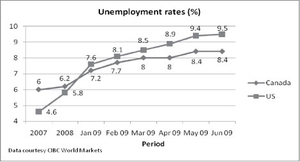 One could be forgiven for being optimistic these days. The stock markets are up 30% from their lows of March 2009, even taking into account the recent correction; housing starts and new home purchases showed surprising strength in Canada in June; job losses in the US and Canada seem to be slowing; lower mortgage rates and gas prices have freed up cash in consumer’s pockets and allowed more people to keep their homes; auto sales seem to be bottoming out
One could be forgiven for being optimistic these days. The stock markets are up 30% from their lows of March 2009, even taking into account the recent correction; housing starts and new home purchases showed surprising strength in Canada in June; job losses in the US and Canada seem to be slowing; lower mortgage rates and gas prices have freed up cash in consumer’s pockets and allowed more people to keep their homes; auto sales seem to be bottoming out
No value in paper-based organics
By Mischa Popoff on August 6, 2009
I’m the first and only organic inspector to blow the whistle on the organic industry. My story was first covered by The Western Producer and then picked up by the CBC, CTV, Maclean’s and Barron’s. I paid a high price for going public, but it was the right thing to do.
Now comes news about a study by the London School of Hygiene and Tropical Medicine saying organic food is no more nutritious than regular food. The immediate response from top representatives of the organic industry has been that they never said organic food was more nutritious, only that it contains fewer harmful chemicals.
Piperberg's World
By Roy Piperberg on August 6, 2009
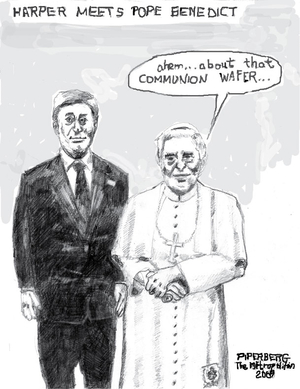
SUITE READ
By Alan Hustak on August 6, 2009
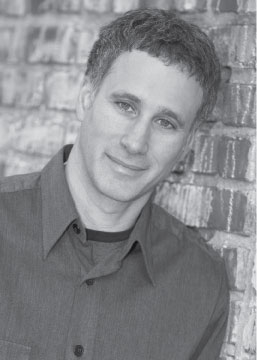 Eric Siblin has a foot planted firmly in two musical worlds. A film maker and widely travelled Montreal Free-lance journalist and documentary film maker who cut his teeth as a newspaper pop-music critic, Siblin, 48, has entered the so-called classical sphere with his first book by deconstructing J.S. Bach’s cello suites. It is an extraordinary effort, a free-wheeling literary riff about the art of making music . Like travel writer Bruce Chatwin, Siblin condenses worlds into pages and leaves a reader hungry for more. He became fascinated with the “dark moody tones’‘ of the cello suites nine years ago after hearing them for the first time played at the Royal Conservatory of Music In Toronto .. “I had no reason to be there,” he writes, … “but I might have been searching for something without knowing it. Top 40 tunes had overstayed their welcome in my auditory cortex, and the culture surrounding rock music had worn thin. I wanted music to occupy a central part in my life, but in a different way.”
Eric Siblin has a foot planted firmly in two musical worlds. A film maker and widely travelled Montreal Free-lance journalist and documentary film maker who cut his teeth as a newspaper pop-music critic, Siblin, 48, has entered the so-called classical sphere with his first book by deconstructing J.S. Bach’s cello suites. It is an extraordinary effort, a free-wheeling literary riff about the art of making music . Like travel writer Bruce Chatwin, Siblin condenses worlds into pages and leaves a reader hungry for more. He became fascinated with the “dark moody tones’‘ of the cello suites nine years ago after hearing them for the first time played at the Royal Conservatory of Music In Toronto .. “I had no reason to be there,” he writes, … “but I might have been searching for something without knowing it. Top 40 tunes had overstayed their welcome in my auditory cortex, and the culture surrounding rock music had worn thin. I wanted music to occupy a central part in my life, but in a different way.”
Darwin: sur le fil très ténu d’une humeur simple
By Louise V. Labrecque on August 6, 2009
C’est tout bête?
La sélection naturelle, l’adaptation au milieu, l’évolution des espèces, et quoi d’autre encore ? Ah oui : les histoires de fous aux Galapagos, les singes qui parlent (on en connaît tous !), l’architecture de l’embryon, les fleurs musicales, les hirondelles de Tchernobyl et les batailles de mouches, constituent quelques exemples figurant au palmarès de ce livre extraordinaire, Darwin, cest tout bête, qui relate, avec un humour imparable, la vie du célèbre naturaliste et scientifique Charles Darwin. L’auteur, Marc Giraud, a frappé dans le mille, en proposant aux néophytes en la matière toute la rigueur de l’activité cérébrale de Darwin, mais sous une forme ludique particulière, où l’interrogation se dresse de tous bords, tous côtés.
Le charme de la Polonaise Malgorzata Kubala séduit au Canada La soprano
By Zénon Mazur on August 6, 2009
La tournée qu’a effectuée la cantatrice Malgorzata Kubala au Canada n’est pas passée inaperçue, notamment dans la communauté polonaise. La présence de cette grande cantatrice polonaise au Canada au cours du mois de juin 2009 constitue une preuve supplémentaire de l’engagement du nouveau consul de la Pologne dans la métropole québécoise, Tadeusz Zylinski, en faveur de la culture.

